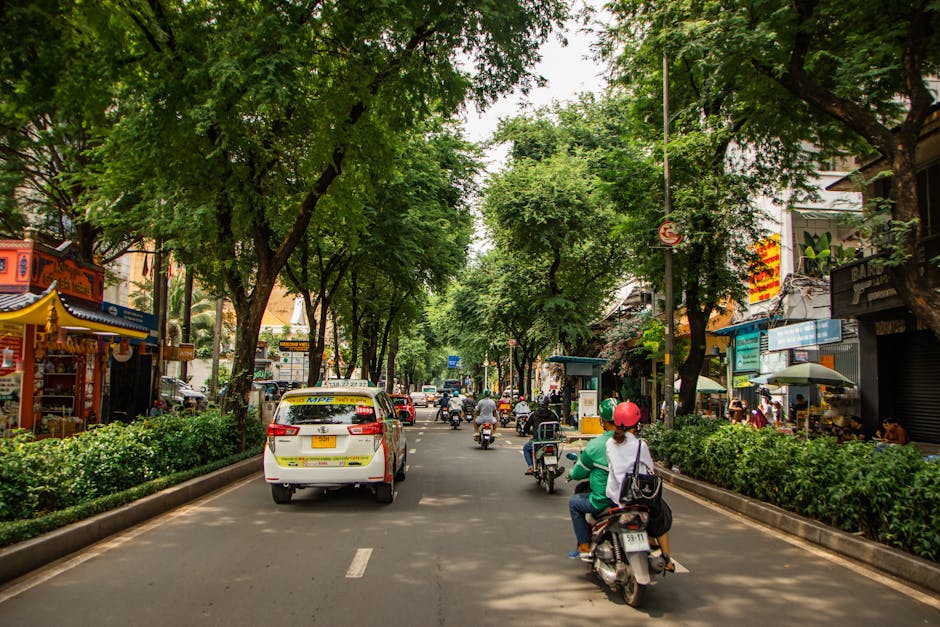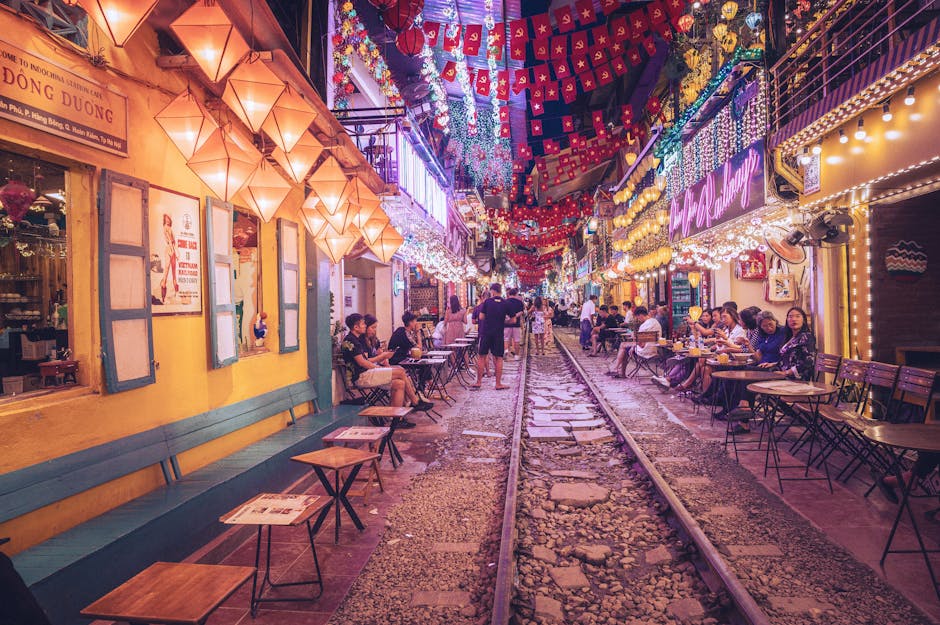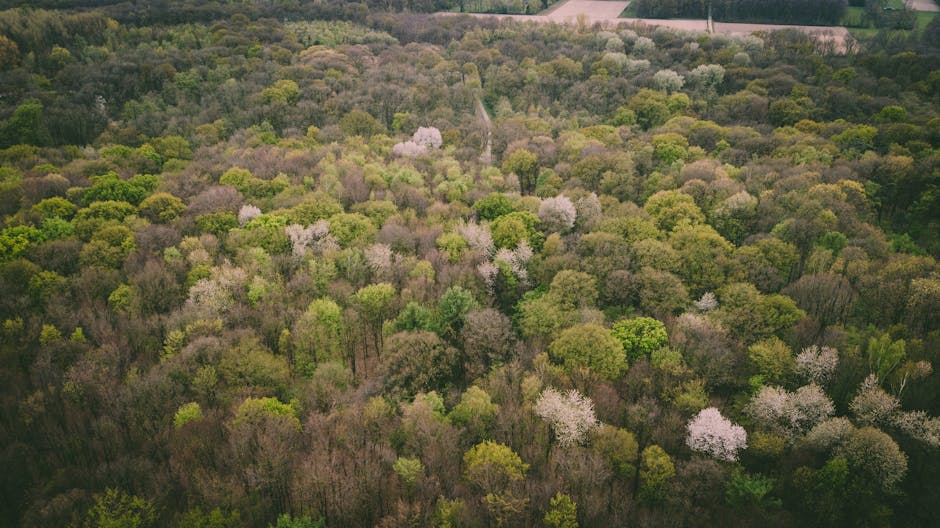Travel trends in 2025 are fundamentally transforming how we discover the world and write our stories. As travelers seek deeper connections, more meaningful experiences, and a lighter footprint, the landscape of exploration is rapidly evolving. At Journey Atlas, we dive into the top travel trends shaping the future, from sustainable journeys and regenerative tourism to tech-enhanced adventures and a renewed focus on authenticity. Whether you’re a seasoned globetrotter or planning your first adventure, understanding these trends will help you travel smarter, more responsibly, and with a greater sense of purpose.
Sustainable Travel: The Heartbeat of 2025

Photo by Tường Chopper on Pexels
In 2025, sustainable travel stands at the forefront of every conversation about tourism’s future. Travelers, especially Gen Z and Millennials, are more conscious than ever about their environmental impact. They’re seeking out certified eco-friendly accommodations, low-emission transportation, and experiences that benefit both the planet and local communities. This shift is not just about minimizing harm; it’s about creating a positive legacy wherever we roam.
Destinations and travel providers are responding with innovative solutions. Eco-certification programs like Green Key, EarthCheck, and local initiatives are becoming badges of honor for hotels and tour operators. Booking platforms now highlight sustainability credentials, making it easier for travelers to choose responsibly. Carbon-neutral and even carbon-negative travel options are gaining traction, with airlines and hotels offering ways to offset or reduce emissions. Local, organic food and zero-kilometer dining experiences are in demand, as travelers seek to support regional producers and minimize their carbon footprint.
Beyond the environment, sustainable travel emphasizes cultural preservation and community involvement. Authentic cultural exchanges, volunteering opportunities, and support for local artisans enrich the travel experience while ensuring tourism dollars benefit those who need them most. The rise of flight-free getaways, such as scenic train journeys and cycling tours, further reduces emissions and allows travelers to connect more intimately with their surroundings.
The message is clear: sustainable travel is no longer a niche, but the new standard. It’s about making conscious choices that protect the world’s beauty for future generations—while still enjoying the thrill of discovery.
Regenerative Tourism: Leaving Destinations Better Than We Found Them

Photo by Claudia Schmalz on Pexels
While sustainability focuses on minimizing negative impacts, regenerative tourism goes a step further. This trend is about actively improving the places we visit, leaving them healthier, more vibrant, and more resilient. In 2025, travelers are seeking opportunities to give back—whether through participating in conservation projects, supporting rewilding initiatives, or engaging in community development programs.
Regenerative travel experiences might include helping restore coral reefs, planting native trees, or volunteering with local NGOs. Many destinations now offer immersive programs that allow visitors to contribute meaningfully to environmental and social causes. These hands-on activities not only make a tangible difference but also foster a deeper connection to the destination and its people.
Tourism boards and travel companies are collaborating with local communities to design experiences that prioritize regeneration. This might involve capping visitor numbers to prevent overtourism, promoting off-season travel, or encouraging longer stays that allow for more meaningful engagement. The result is a win-win: travelers enjoy richer, more authentic experiences, while destinations receive the support they need to thrive.
Regenerative tourism is about shifting the mindset from consumption to contribution. It challenges us to ask, “How can my journey make a positive impact?”—and empowers us to be part of the solution.
Tech-Enhanced Travel: The Digital Revolution Continues

Photo by Andrea Piacquadio on Pexels
Technology is revolutionizing the way we travel, and in 2025, tech-enhanced travel is more integrated than ever. Artificial intelligence (AI) and augmented reality (AR) are transforming every stage of the journey, from planning to exploration. Personalized itineraries, crafted by AI based on your interests and travel history, offer tailored recommendations for accommodations, activities, and dining.
Augmented reality apps allow travelers to overlay historical facts, cultural insights, and navigation tips onto real-world landmarks, creating immersive experiences that bring destinations to life. Virtual reality (VR) previews help travelers “try before they buy,” exploring hotels, attractions, and even entire cities from the comfort of home.
Smart luggage with GPS tracking, built-in charging ports, and biometric locks is making travel more convenient and secure. Airports are adopting biometric systems for faster, contactless check-ins and border crossings, streamlining the journey from start to finish. Mobile apps now offer real-time translation, currency conversion, and digital health passports, eliminating many of the traditional hassles of international travel.
Even sustainability efforts are getting a tech boost. Apps that track your carbon footprint, suggest eco-friendly routes, and connect you with local green initiatives are empowering travelers to make informed choices. As technology continues to evolve, the travel experience becomes more seamless, personalized, and responsible.
Slow Travel and Off-the-Beaten-Path Destinations

Photo by Nguyen Ngoc Tien on Pexels
In a world that often feels rushed, slow travel is gaining momentum. This trend is about savoring each moment, immersing yourself in local life, and forging genuine connections. Rather than ticking off a checklist of attractions, slow travelers choose to spend more time in fewer places, embracing the rhythms and routines of their chosen destinations.
Off-the-beaten-path destinations are also in the spotlight. Travelers are seeking hidden gems—small towns, rural villages, and lesser-known natural wonders—where they can escape the crowds and experience authentic culture. This shift not only benefits travelers, who enjoy more meaningful and peaceful experiences, but also helps distribute tourism more evenly, reducing pressure on popular hotspots.
Slow travel often involves alternative modes of transportation, such as scenic train rides, cycling tours, or even long-distance walking routes. These journeys allow for deeper engagement with the landscape and its people. Home stays, farm stays, and local guesthouses are favored over large hotels, providing opportunities to learn from hosts and participate in daily life.
This mindful approach to travel encourages us to appreciate the journey as much as the destination, fostering a sense of presence and gratitude. It’s about quality over quantity—creating memories that last a lifetime.
Authentic and Personalized Experiences

Photo by DΛVΞ GΛRCIΛ on Pexels
Today’s travelers crave authentic and personalized experiences that reflect their unique interests, values, and aspirations. In 2025, the desire for “Instagrammable” moments is giving way to a deeper search for meaning and connection. Travelers want to learn new skills, engage with local communities, and participate in traditions that can’t be found in guidebooks.
Personalization is key. AI-driven platforms curate experiences based on individual preferences, whether it’s a private cooking class with a local chef, a guided hike to a hidden waterfall, or a behind-the-scenes tour of a family-run vineyard. Travelers are also seeking “transformational” journeys—retreats focused on wellness, creativity, or personal growth—that offer opportunities for reflection and renewal.
Food tourism, cultural festivals, and hands-on workshops are more popular than ever, allowing travelers to immerse themselves in the flavors, sounds, and stories of a place. Local guides and hosts play a vital role, sharing insider knowledge and fostering genuine connections.
This focus on authenticity and personalization is reshaping the travel industry, encouraging providers to create bespoke offerings that celebrate the diversity and richness of each destination. For travelers, it means every journey becomes a chapter in their own unique story.
Wellness and Mindful Travel

The pursuit of well-being is now central to the travel experience. Wellness and mindful travel trends are flourishing in 2025, with travelers seeking destinations and activities that nurture the body, mind, and spirit. Wellness retreats, yoga and meditation escapes, and nature-immersive experiences are in high demand.
Travelers are prioritizing mental health, self-care, and stress reduction, choosing destinations known for their healing landscapes, thermal springs, or tranquil settings. Digital detox retreats, where guests unplug from technology and reconnect with themselves and the natural world, are gaining popularity.
Mindful travel extends to every aspect of the journey, from conscious packing and sustainable choices to intentional itinerary planning. It’s about traveling with awareness, respecting local customs, and leaving a positive impact. Many travelers are also embracing “wellness sabbaticals”—extended trips that combine remote work with health-focused activities, allowing for a balanced and rejuvenating lifestyle.
As the boundaries between work, life, and travel continue to blur, wellness and mindfulness will remain essential pillars of the modern travel experience.
The Rise of Bleisure and Remote Work Travel

Photo by Kampus Production on Pexels
The way we work—and travel—has changed dramatically. In 2025, bleisure travel (business + leisure) and remote work trips are more popular than ever. Digital nomad visas, now available in dozens of countries, allow professionals to work from inspiring locations while exploring new cultures in their free time.
This trend is reshaping the traditional boundaries between business and leisure. Many travelers are extending work trips to include personal exploration, or relocating for weeks or months at a time to enjoy a “workcation.” Destinations are responding by offering coworking spaces, high-speed internet, and community events designed for remote workers.
Bleisure travelers seek balance—productive work environments during the day, and enriching experiences after hours. Coastal towns, mountain retreats, and vibrant cities are all catering to this new wave of mobile professionals, providing the infrastructure and support needed for a seamless blend of work and play.
For many, this flexibility is the ultimate travel perk: the freedom to write their own story, wherever in the world they choose to be.
Conclusion: Writing Your Own Travel Story in 2025

Photo by Javier Gonzalez on Pexels
The travel trends of 2025 reflect a profound shift in how we explore the world. Sustainability, regeneration, technology, authenticity, wellness, and flexibility are no longer optional—they are the foundation of meaningful journeys. As we embrace these trends, we become not just travelers, but storytellers and stewards of the places we visit.
At Journey Atlas, our mission is to inspire you to discover the world and write your own story—one that is responsible, enriching, and uniquely yours. The future of travel is bright, and it’s yours to shape.
Sources
- https://www.mylighthouse.com/resources/blog/travel-trends-2025-traveler-segments
- https://straitsresearch.com/blog/key-trends-shaping-sustainable-tourism
- https://www.travelingbagsmke.com/blogs/luggage-tips-tricks-travel-news/top-travel-trends-for-2025-what-s-shaping-the-future-of-exploration
- https://www.travelagewest.com/Industry-Insight/Business-Features/summer-travel-trends-2025
- https://reports.weforum.org/docs/WEF_Future_of_Travel_and_Tourism_2025.pdf
